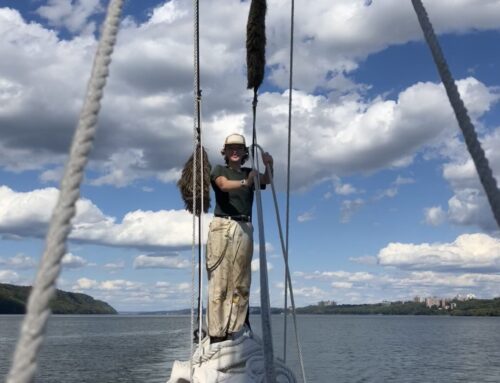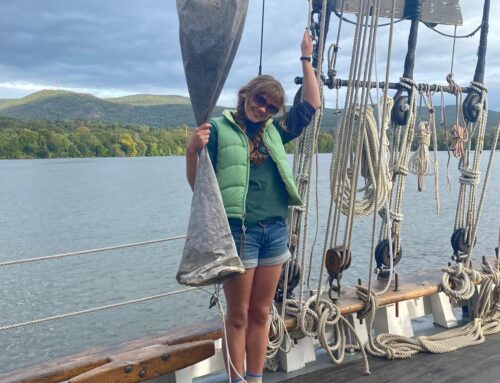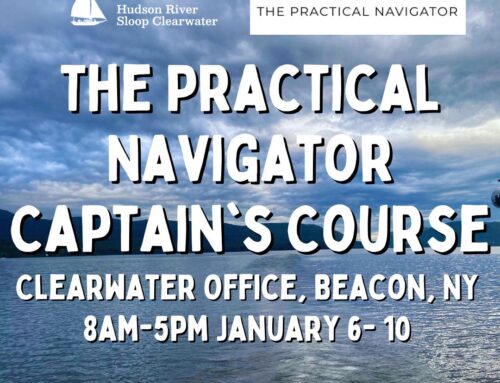FOR IMMEDIATE RELEASE
December 3, 2013
Contacts:
Richard Webster, Public Justice, (202) 630-5708 RWebster@PublicJustice.net
Julia Church, Hudson River Sloop Clearwater, (845) 265-8080, x7112, Commun@Clearwater.org
BEACON, NY — On November 27, Thanksgiving eve, the Atomic Safety and Licensing Board (ASLB), the trial court of the Nuclear Regulatory Commission (NRC), found in favor of Clearwater and against Entergy and the NRC Staff in the review of an Environmental Justice contention filed by Hudson River Sloop Clearwater with legal counsel provided by Public Justice, and concerning the relicensing of the Indian Point Nuclear Power Plant in Buchanan, NY.
Clearwater contended that the NRC’s Environmental Impact Statement for the relicensing of the reactor was inadequate because it failed to recognize that an accident at the plant would have greater impact on environmental justice populations, including prisoners at nearby Sing-Sing Correctional Facility, than on the general population.
The Board found that the NRC Staff “failed to follow its own internal procedure” in carrying out the assessment. In effect, the NRC Staff “analyzed the wrong variables” by failing to compare the effects of the relicensing on environmental justice populations relative to the effects on the general population. Therefore the NRC staff “failed to comply with its . . . obligations” to analyze environmental justice impacts under the National Environmental Policy Act.
The NRC Staff had claimed that they were not required to look at accident impacts, but the ASLB found that “there is no legal foundation for the NRC Staff’s failure” to analyze accidents. However, instead of requiring more analysis to devise appropriate mitigation, the ASLB said that the NRC should merely take note of the greater impact on environmental justice populations when it makes the decision about relicensing.
Richard Webster, environmental enforcement attorney at Public Justice P.C. and the lead attorney for Clearwater stated, “After years of litigation, the ASLB has finally recognized that the method the NRC Staff has used to dismiss environmental justice concerns about the Indian Point relicensing, and all reactor license renewals, is illegal. However, it is totally unacceptable that instead of trying to reduce or eliminate disproportionate impacts, the ASLB said that merely taking note of them is sufficient.”
Manna Jo Greene, Clearwater’s environmental action director and a witness in the relicensing case, said, “While we are very appreciative that the ASLB judges acknowledged that the evidence Clearwater presented verified our contention, the NRC Staff and Entergy failed to undertake the comprehensive environmental justice assessment that is required by National Environmental Policy Act (NEPA); it is not our job to do this for them. Our work was to point out the deficiencies, not to do the analysis. The Board has not only given NRC Staff and Entergy a pass by not requiring a more comprehensive investigation, they have also failed to require any action that could mitigate the disproportionate impact, such as assuring adequate potassium iodide was available in area jails, prisons and other facilities where people will not be easily evacuated – or will be required to shelter in place – or directing people who do not have personal transportation to shelters, not to bus stations where, in the event of a severe accident, they could be exposed to radiation for hours.”
Stephen Filler, Vice President of the Board of Directors of Clearwater and witness, points out, “We are pleased that the ASLB validated Clearwater’s argument — that a radioactive release at Indian Point would have a much more negative impact on the regional low income, minority, and infirm populations. However, the ASLB has failed in its mission to protect by not requiring more investigation or mitigation of these impacts. It is totally irresponsible for the ASLB to acknowledge that there is a problem that violates federal law, and yet have taken no steps to fix the situation. For as long as the plant is operating and there is radioactive material present, the NRC needs to assure that all people — and not just those with the means — can be protected and evacuated in the event of a radioactive release.”
About Hudson River Sloop Clearwater
Inspiring, educating and activating millions of people for over 45 years, Hudson River Sloop Clearwater has been at the forefront of the environmental movement as champion of the Hudson River, working to pass landmark legislation like the Clean Water Act, providing innovative educational programs, environmental advocacy, and musical celebrations, including the renowned annual Clearwater Festival. The organization was founded by music legend and environmental activist Pete Seeger in 1966. The iconic sloop Clearwater was launched in 1969 and is a majestic replica of the sloops that sailed the Hudson in the 18th and 19th centuries. To date, more than half a million people have experienced their first real look at an estuary’s ecosystem aboard the vessel. The organization’s strong connection to youth, environmental education, and its agenda to create the next generation of environmental leaders are all part of building and strengthening a Green Cities Initiative for a green economy and a more inclusive and diverse environmental movement. Utilizing the greatest natural resource in the region, the Hudson River, Clearwater has become the grassroots model for producing positive changes to protect our planet. For more information, visit www.Clearwater.org. Hudson River Sloop Clearwater, Inc. is a 501(c) 3 tax-exempt nonprofit, member-supported corporation whose mission is to preserve and protect the Hudson River, its tributaries and related bodies of water.
About Public Justice
For over 30 years, Public Justice and its dedicated public interest advocates, including staff attorneys and private attorneys around the country, continue to fight injustice and preserve access to the courts for ordinary people. Injustice is America’s enemy, holding us all back and preventing our country from working the way it was meant to work and Public Justice has made a long line of wrongdoers account for the injustices inflicted on people, including deceptive pharmaceutical companies, irresponsible manufacturers, unscrupulous payday lenders, unjust employers, punitive credit card companies, unfair school athletic programs, inhumane government detention centers, dangerous food producers, reckless polluters and more. Public Justice is America’s public interest law firm. Through creative litigation, public education, and innovative work with the broader public interest community, we protect people and the environment; hold the powerful accountable; challenge government, corporate, and individual wrongdoing; increase access to justice; combat threats to our justice system; and inspire lawyers and others to serve the public interest. Visit http://PublicJustice.net for more information.
# # #





